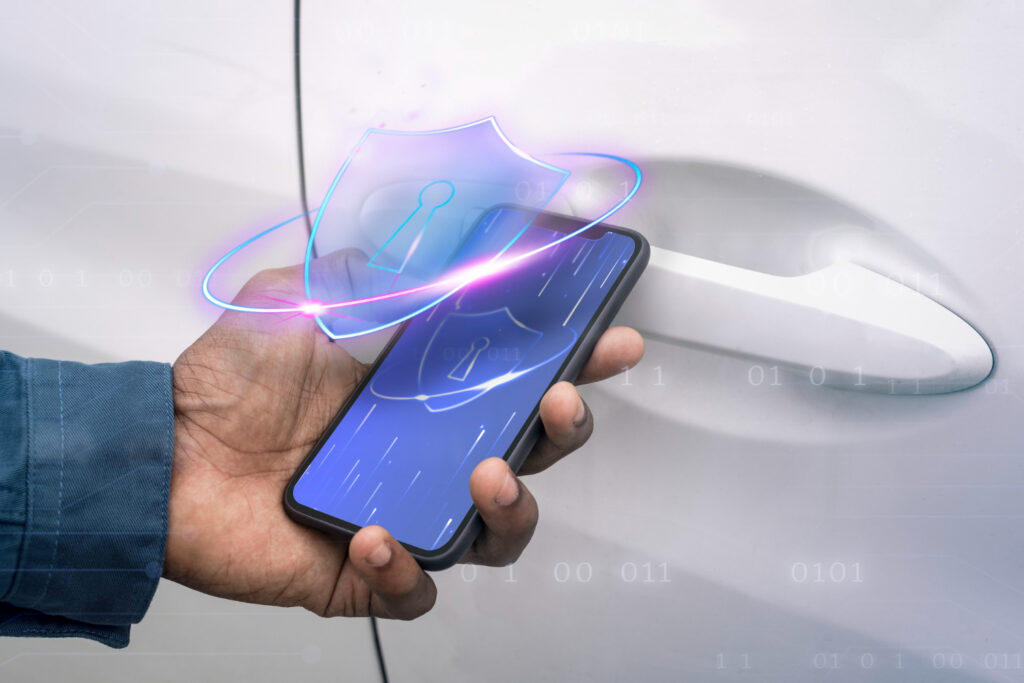In the age of advanced technology, even our cars have become susceptible to hacking. Modern vehicles are equipped with intricate computer systems that control everything from entertainment to safety features, making them potential targets for cybercriminals. Car hacking can lead to unauthorized access, data breaches, and even compromise your safety on the road. To help you keep your ride secure, this article outlines effective strategies to prevent your car from being hacked.

Understanding Car Hacking
Car hacking involves exploiting vulnerabilities in a vehicle’s electronic systems to gain unauthorized access or control. Cybercriminals can target various components, such as the infotainment system, keyless entry, or even critical safety systems like brakes and steering. By understanding the risks, you can take proactive steps to protect your car from potential attacks.
Key Prevention Measures:
-
Keep Software Updated: Just like your computer or smartphone, your car’s software needs regular updates to fix security vulnerabilities. Make sure to install manufacturer-approved updates and patches as they become available.
-
Secure Your Vehicle’s Network: Many modern cars have internal networks that connect various systems. Ensure that this network is well-secured and isolated from external connections that hackers could exploit.
-
Change Default Passwords: If your car allows for Wi-Fi connections or remote access, change any default passwords immediately. Default passwords are often widely known and easily exploitable.
-
Disable Unnecessary Features: If your car has features like remote start or telematics that you don’t use, consider disabling them. Each additional feature presents a potential entry point for hackers.
-
Use Strong, Unique Passwords: If your car has a mobile app or a web portal, create a strong, unique password for your account to prevent unauthorized access.
-
Stay Cautious of Third-Party Devices: Be cautious when adding aftermarket devices to your car’s systems, as these could introduce vulnerabilities. Ensure any additions are from reputable sources and properly installed.
-
Physical Security Measures: Protect your car physically by parking in well-lit areas, using steering wheel locks, and considering installing a car alarm system.
-
Use a Faraday Cage or Signal Blocker: To prevent thieves from accessing your keyless entry signal, consider using a Faraday cage or signal blocker pouch to shield your key fob’s signal.
-
Be Cautious with Public Wi-Fi: Avoid connecting your car to public Wi-Fi networks, as these can be less secure and potentially expose your car’s systems to hackers.
Securing Your Car’s Bluetooth and Infotainment System:
-
Disable Bluetooth When Not in Use: Turn off your car’s Bluetooth connectivity when you’re not actively using it. This prevents potential hackers from connecting to your car’s systems.
-
Limit App Permissions: If you use a mobile app to control your car, review and limit its permissions. Only grant access to essential features and information.
-
Check for Firmware Updates: Similar to software updates, ensure your car’s infotainment system and Bluetooth software are up to date to address any known vulnerabilities.
Preventing Remote Key Fob Hacking:
-
Use Signal Blockers: Invest in a Faraday pouch or wallet for your key fob. These items block the signals emitted by your key fob, preventing thieves from intercepting them.
-
Store Keys Wisely: When at home, keep your car keys away from doors and windows to minimize the chances of thieves using signal amplifiers to boost your key fob’s signal.
What to Do If You Suspect Car Hacking:
If you suspect your car has been hacked, take immediate action to mitigate the potential damage:
-
Disconnect: If possible, disconnect your car’s battery to sever any unauthorized connections.
-
Contact Manufacturer: Reach out to your car’s manufacturer or dealership for guidance. They can help you assess the situation and advise on next steps.
-
Report to Authorities: If you believe your car has been hacked or compromised, consider reporting the incident to local law enforcement.
Final Thoughts
Protecting your car from hacking requires a combination of proactive measures, vigilance, and awareness of potential risks. By staying informed about the latest cybersecurity developments and following the prevention strategies outlined in this article, you can significantly reduce the chances of your car falling victim to hackers. Remember, just as you lock your car’s doors to prevent physical theft, it’s equally crucial to lock down its digital vulnerabilities to ensure a safe and secure driving experience.